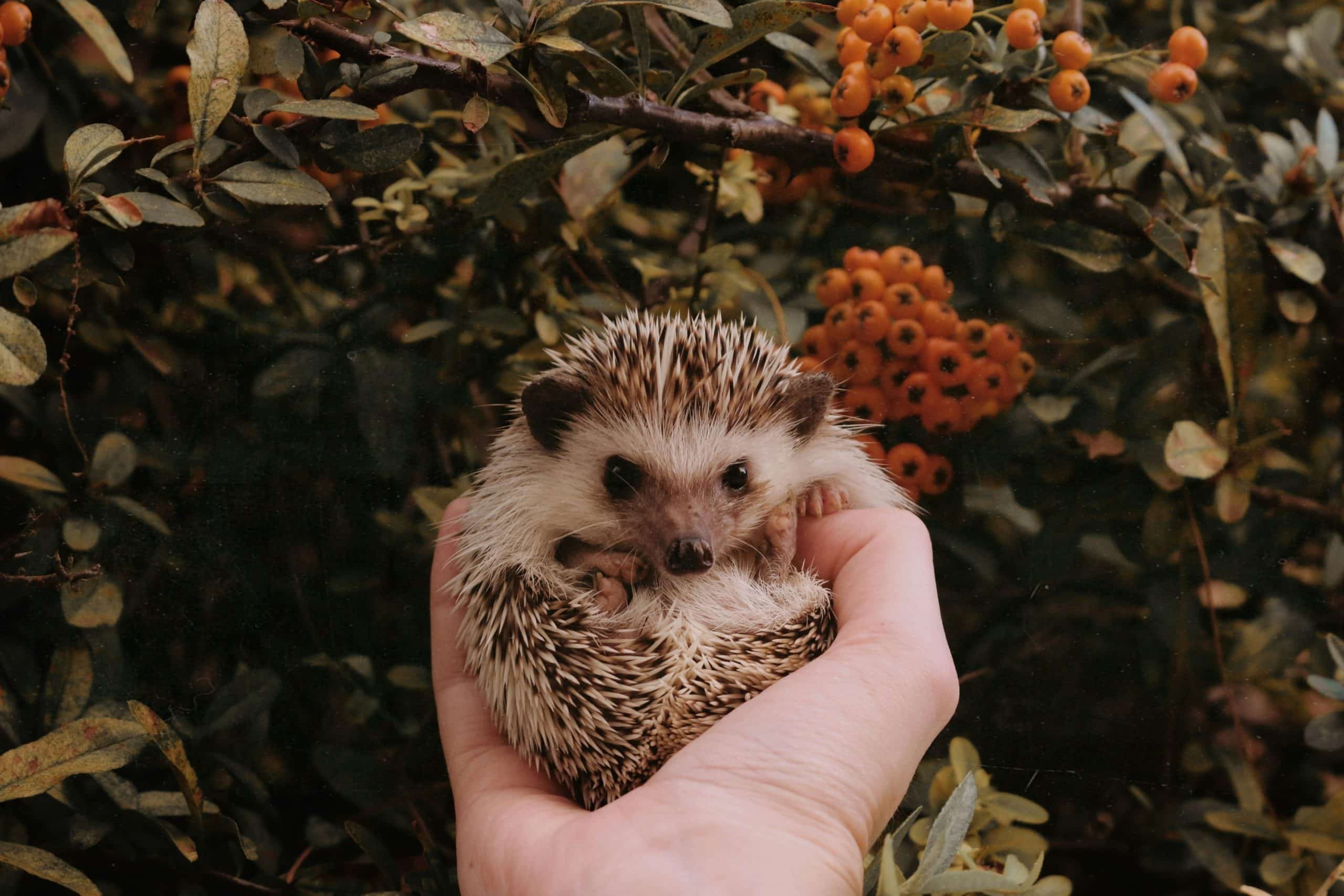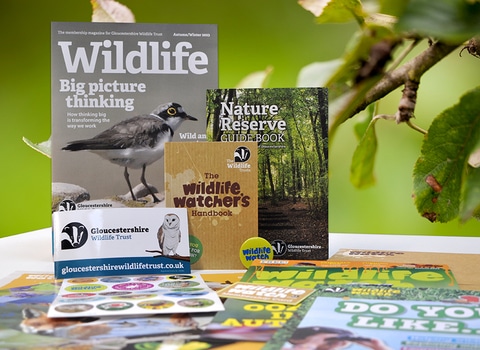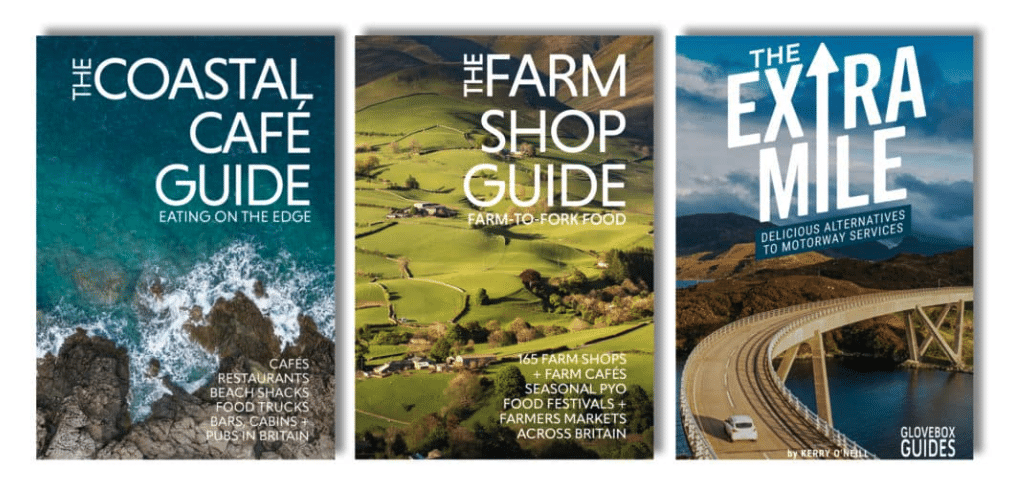
Bringing nature back: The Wildlife Trusts in focus
At the heart of The Farm Shop Guide lies a simple idea: that food should be good for people, good for farmers, and good for the planet. This beautifully designed book celebrates the best farm shops, producers and food destinations across the UK – places where local food and sustainable farming come together.
But The Farm Shop Guide isn’t just about where to shop. It’s about supporting a better food system. That’s why a percentage of every book sold is donated to the Sustainable Food Trust, a pioneering charity working to make farming in Britain more regenerative, nature-friendly and fair for all.
The Wildlife Trusts' activities and campaigns
At The Farm Shop Guide, we believe that good food and good farming depend on a healthy, thriving natural world. That’s why in this post we turn the spotlight to The Wildlife Trusts. This group of charities makes up one of the most powerful and far-reaching networks in the UK working to restore, protect and reconnect nature.
The Farm Shop Guide is committed to showcasing their work, amplifying their voice, and helping readers understand just how central nature is to the food system.
The Wildlife Trusts are a federation of 46 independent local organisations across the UK, the Isle of Man and Alderney, (beneath the umbrella of the Royal Society of Wildlife Trusts ). Collectively, they manage more than 2,600 nature reserves, amounting to nearly 98,500 ha of land dedicated to wildlife.
Strategic vision and campaigns
Their guiding strategy, Bringing Nature Back 2030, sets out an ambition to reverse biodiversity loss by combining local action with collective scale. Key elements of their work include restoring habitat connectivity, amplifying efforts across land and sea, and engaging communities as agents of change.
One of their flagship projects is 30 Days Wild, a month-long annual challenge in June that invites people to do ‘one wild thing’ each day, whether that’s birdwatching, planting a wildflower, or simply listening to nightingales. In 2025, they’ve already used this ethos to prompt people to ‘move like wildlife’: walking, cycling, and dancing more in and with nature.
Another high-profile moment in 2025 was National Marine Week, (which happened from 26 July to 10 August in 2025). This event celebrates the richness and vulnerability of the UK’s seas, from reefs to seagrasses, through local events and social media campaigns.
The Wildlife Trusts are also pressing the government on policy fronts: for instance, The Wildlife Trusts have voiced concern over the proposed Planning and Infrastructure Bill, warning that current drafts risk weakening protections for habitats under restoration, especially peatlands and ancient woods.
The organisation argue that loopholes in Biodiversity Net Gain (BNG) proposals could undermine genuine nature recovery unless tightened.
Land acquisitions and flagship projects
In 2024, The Wildlife Trusts made a landmark move by acquiring a large portion of the Rothbury estate in Northumberland: one of the biggest private land purchases in decades. They intend to restore degraded lands, overlay regenerative farming, and open it to public access. This project could become a national showcase of nature-first land management, integrating wildlife recovery and sustainable agriculture.
Looking ahead to 2026
Between 2025 and 2030, The Wildlife Trusts aim to expand their ‘30 by 30‘ campaign (securing at least 30 % of land and sea for nature recovery) and scale up their habitat restoration efforts, especially in uplands, peatlands, rivers and marine zones.
We can expect stronger advocacy on land-use reforms, tighter planning protections for nature, and further growth of flagship projects like Rothbury.
For readers of The Farm Shop Guide, The Wildlife Trusts’ work is deeply relevant. Farmers and landowners are essential actors in landscape-scale nature recovery. For food production and farming to be truly sustainable, that is to say low in carbon and rich in biodiversity, we need farms and nature to be partners, not rivals. By promoting the work of The Wildlife Trusts, we hope more people see that connection.
Support The Wildlife Trusts today
To learn more about and to become a supporter or member of your local Wildlife Trust, which will have many programmes and projects for you to get involved with or volunteer on, visit The Wildlife Trusts today to get started.

Other food and farming charities in The Farm Shop Guide
Alongside its support for The Wildlife Trusts, The Farm Shop Guide proudly promotes a network of like-minded organisations that share a passion for sustainable farming, wildlife, soil health and local food.
The Sustainable Food Trust
A charity working globally and locally to accelerate the transition towards more sustainable food and farming systems.
Linking Environment and Farming (LEAF)
Encouraging integrated, practical approaches to farming that balance productivity with care for the environment.
The Nature Friendly Farming Network (NFFN)
Uniting farmers who show that profitable food production and thriving biodiversity can go hand in hand.
The Biodynamic Association
Championing holistic farming rooted in ecology, soil health and respect for natural rhythms.
Buglife
Protecting pollinators and other vital insects essential to healthy food systems and biodiversity.
The Farm Retail Association (FRA)
Supporting Britain’s farm shops, farmers’ markets and pick-your-own businesses – the backbone of local food.
RSPB Fair to Nature
Recognising farms that deliver for wildlife through sustainable and biodiversity-friendly practices.
The Permaculture Association
Promoting design systems for sustainable living and regenerative food production.
The Royal Countryside Fund
Founded by HM King Charles III to support rural communities, family farms and a thriving countryside.
The Soil Association
Leading the movement for organic food, healthy soil and better animal welfare.
OF&G Organic
Certifying organic farmers and growers to ensure integrity and transparency in food production.
Better Food Traders
Connecting ethical food retailers and encouraging short, fair and climate-friendly supply chains.
Pasture for Life
Supporting farms that raise animals entirely on grass for better flavour, welfare and environmental impact.
A guidebook for people who want fairer food systems
Printslinger will donate 1% of book sales of The Farm Shop Guide to the Sustainable Food Trust. So whether buying a copy of The Farm Shop Guide for yourself or as a birthday or Christmas gift for someone who loves buying local food and supporting fairer food and farming, The Farm Shop Guide will not let you down. To learn more about this book and our other foodie titles, visit our online bookshop on the button below.


